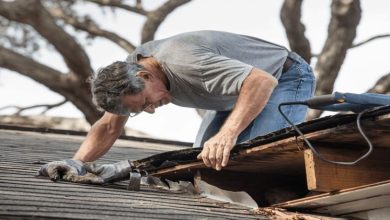The Longevity of Concrete Driveways: How Many Years Can You Expect?

The driveway is a crucial component of your home’s exterior since it adds to its overall curb appeal in addition to being a useful surface. Concrete is a widely preferred driveway material because of its strength, adaptability, and beauty among other options. However, what is the typical lifespan of a concrete driveway? This article will examine the variables that affect concrete driveway longevity and offer information on how long these driveways typically last.
The Basis for Sturdiness
Because of its strength and durability, concrete is a popular choice for driveway materials. When installed and maintained correctly, a concrete driveway can endure daily wear and tear, heavy vehicle traffic, and weather fluctuations. Its durability is ascribed to multiple significant factors:
- Strength: Concrete has a high compressive strength that gives it the inherent strength to support the weight of cars without suffering severe deterioration.
- Resistance to Weathering: Concrete is not easily affected by environmental elements like moisture, UV rays, and temperature changes. In contrast to certain other driveway materials, it does not rot, warp, or corrode.
- Low Maintenance: Driveways made of concrete require little upkeep. Usually, all that’s needed to maintain the surface in good shape is routine cleaning and the occasional sealing.
- Stability: Concrete driveways that are installed correctly have a level, stable surface that won’t settle, shift, or sink over time.
Installation’s Function
Although concrete has inherent durability, a concrete driveway’s lifespan is greatly influenced by the caliber of installation. Here are some things to think about when installing:
- Appropriate Subgrade Preparation: The soil underneath the concrete, or the subgrade, needs to be sufficiently prepared. In order to stop settling and cracking, compaction and leveling are crucial.
- Reinforcement: The strength and stability of the concrete driveway are improved by the use of reinforcement materials like wire mesh or rebar.
- Appropriate Mixing and Pouring: To create a stable and robust surface, concrete must be mixed correctly and poured evenly.
- Curing Time: For concrete to cure and reach its peak strength, enough time is needed. Reduced durability may result from hurried curing.
- Sealing: Using a high-quality sealer helps shield the concrete from stains, UV ray damage, and moisture infiltration. It’s advised to regularly reseal to preserve this barrier.
Anticipated Duration of Concrete Driveway
A concrete driveway’s lifespan can vary depending on a number of factors, such as usage, maintenance, and climate. An appropriately cared-for concrete driveway should last at least 25 to 50 years on average. Let’s dissect these longevity-influencing factors:
- Climate: The longevity of your driveway can be greatly impacted by the climate in your area. The repeated expansion and contraction of water in concrete cracks can accelerate wear and tear in areas subject to freeze-thaw cycles. In these areas, installation and maintenance must be done correctly.
- Maintenance: Keeping your concrete driveway in good condition requires routine maintenance. This entails cleaning to get rid of dirt and stains, sealing again every few years, and taking care of cracks and repairs right away.
- Usage: The driveway’s longevity may be impacted by the number and mass of the cars that use it. In general, a driveway used primarily by passenger cars in a residential setting will endure longer than one used by heavy machinery and trucks in a commercial setting.
- Installation Quality: As was already mentioned, durability is directly impacted by the quality of the initial installation. For a driveway to last, proper preparation, reinforcing, and curing are necessary.
Wear and Tear Indications
Even the best-kept concrete driveways may begin to show signs of deterioration over time. It’s critical to keep an eye out for these typical problems with your driveway:
- Cracking: Weathering, settling, or shifting can cause small cracks to appear. It is possible to stop these cracks from getting worse by promptly repairing them with the proper tools.
- Scaling: The flaking or chipping of the concrete surface is referred to as scaling. Freeze-thaw cycles, the use of deicing agents, or subpar concrete can all cause it. Scaling can be lessened by resealing.
- Stains: Your driveway’s appearance may be negatively impacted by stains from rust, oil, grease, or other materials. Stain removal and routine cleaning can help preserve its appearance.
- Settling: Concrete driveways are susceptible to settling over time, which can result in uneven surfaces or trip hazards. The integrity of the driveway can be restored by leveling and raising the impacted areas.
Tips for Maintaining Longevity
To extend the life of your concrete driveway, think about putting these maintenance suggestions into practice:
- Regular Cleaning: To avoid deterioration and discoloration, remove leaves and debris on a regular basis. To maintain the surface clean and clear of mold or algae growth, pressure wash it on a regular basis.
- Resealing: Schedule a driveway resealing every two to five years, depending on usage and climate. The integrity of the concrete is maintained in part by this protective layer.
- Crack Repair: Fill in any cracks as soon as possible by using a concrete crack filler or patching material that is appropriate for the situation. By doing this, moisture cannot seep in and exacerbate the damage.
- Appropriate Drainage: To avoid water collecting on the surface, make sure your driveway has adequate drainage. Water-related damage can be avoided with the right slope and drainage channels.
- Steer Clear of De-Icing Chemicals: To avoid damage from chemical reactions in cold climates, use sand or non-corrosive de-icing materials. Steer clear of calcium chloride and rock salt.
- Precautions for Heavy Vehicles: Consider adding more support or thicker concrete to your driveway if you anticipate heavy machinery or vehicles using it.
When to Think About Replacing
Your concrete driveway might eventually need to be replaced, even with routine maintenance. Here are some indicators that it’s time to think about replacing:
- Extensive structural damage and cracking that is not effectively repaired.
- Settling or sinking that leaves significant unevenness behind.
- Recurring incidents of spalling or scaling that jeopardize the surface integrity of the driveway.
- Issues with aesthetics that seriously harm the appearance of your property.
- Outmoded layout or design that doesn’t suit your aesthetic or functional needs.
When thinking about replacing your driveway, speak with a qualified concrete contractor Huntsville about your options for a new driveway and how to evaluate the state of your current one.
Finally,
A properly cared-for concrete driveway can add years of dependable use to your home while also improving its appearance and usefulness. A concrete driveway’s anticipated lifespan can vary depending on usage, maintenance, and climate, but it usually lasts 25 to 50 years or longer. The durability and aesthetic appeal of your concrete driveway can be preserved for many years to come with the right installation and regular upkeep, find more here.




